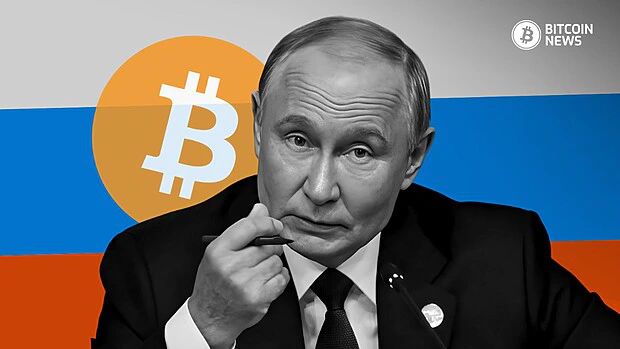In a groundbreaking move, Russian President Vladimir Putin has signed a series of laws recognizing digital assets as property, making Russia one of the most notable nations to embrace Bitcoin on a legal level.
The legislation, effective from November 29, 2024, introduces a new taxation framework, clarifies rules for bitcoin mining, and sets the stage for Russia’s growing involvement in the global digital economy.
This development is expected to bring sweeping changes to Russia’s economic landscape and position the country as a significant player in the Bitcoin space.
At the heart of the new legislation is the recognition of bitcoin as property under Russian law.
This move provides digital currencies with legal standing, allowing them to be taxed, traded, and utilized in foreign trade agreements under an experimental legal framework.
President Putin’s approval of this legislation reflects a clear commitment to integrating Bitcoin into Russia’s financial systems. This marks a significant step towards building infrastructure and creating a regulatory framework for digital assets.
The new law imposes a personal income tax of 13% on digital asset gains up to 2.4 million rubles (approximately $28,800) and a higher rate of 15% for gains above this threshold.
Mining operations, however, are exempt from value-added tax (VAT), a move aimed at encouraging domestic mining activities.
Related: Putin Signs Landmark Law Legalizing Bitcoin Mining Across Russia
Corporate profits from mining will be taxed at the standard rate of 25% starting in 2025, signaling the government’s intent to capitalize on the lucrative bitcoin mining industry.
Operators of mining infrastructure are required to report their activities to local tax authorities, with non-compliance resulting in fines of 40,000 rubles (about $375).
By exempting miners from VAT, the legislation aims to bolster the mining industry in Russia, which already ranks as a global powerhouse due to its abundance of cheap energy.
Analysts believe these tax exemptions are designed to attract international miners and promote job creation in the tech and energy sectors.
Regions with significant energy resources, like Irkutsk, are expected to benefit from increased mining activity. However, the energy-intensive nature of mining has raised concerns, with Deputy Prime Minister Alexander Novak proposing limits in regions facing power shortages.
As sanctions from Western nations continue to strain Russia’s economy, the government is also exploring the use of bitcoin in cross-border transactions. By leveraging the decentralized nature of digital currencies, Russia aims to bypass sanctions and facilitate international trade.
Bitcoin provides a lifeline for transactions that are otherwise restricted. Reports suggest that trials for cross-border exchanges are already underway using the National Payment Card System to convert rubles into digital assets.
The adoption of Bitcoin comes at a critical time for Russia, with the ruble hitting record lows against the U.S. dollar.
In November, bitcoin reached an all-time high against the ruble, trading at approximately 11 million rubles per bitcoin. This surge highlights both the global rise of bitcoin and the declining strength of Russia’s national currency.
Inflation remains a pressing concern, with staples like butter and potatoes becoming significantly more expensive.
Critics argue that increased defense spending and sanctions have stretched resources thin. However, the International Monetary Fund (IMF) predicts a 3.6% growth in Russia’s GDP for 2024, providing a glimmer of hope for the struggling economy.
Russia’s embrace of Bitcoin has sparked mixed reactions globally. While it positions the country as a Bitcoin-forward nation, some fear it could heighten tensions with countries favoring stricter digital currency regulations.
Environmentalists, too, have raised concerns about the increased energy consumption associated with mining. Mining operators are already facing restrictions in some regions, and these limitations are expected to remain in place until 2031.
Related: Bitcoin Mining Sustainable Energy Use Soars to 54.5%, A New ATH
As Russia officially integrates Bitcoin into its financial system, the move is expected to redefine its role in the global economy.
By creating a structured taxation system, encouraging domestic mining, and exploring cross-border Bitcoin transactions, Russia is positioning itself as a significant player in the digital asset market.
While challenges like energy consumption, regulatory risks, and international backlash remain, the potential benefits—ranging from job creation to economic diversification—are hard to ignore.
This highlights leveraging Bitcoin’s potential to tackle economic challenges and foster growth, with global attention on the impact of these policies.
With the new regulations set to be fully implemented by January 2025, Russia’s Bitcoin journey is just beginning. Whether this will lead to economic revival or further controversy remains to be seen.










